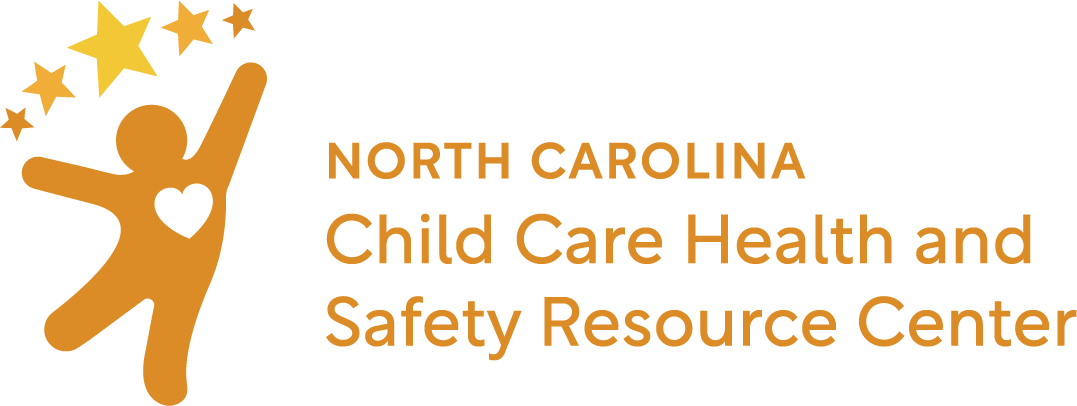Safety and Injury Prevention
Child Care Health Consultant Competency 9: Safety and Injury Prevention
(Source: Early Childhood Learning & Knowledge Center, Child Care Health Consultant Competencies)
The CCHC assesses and identifies injury hazards indoors, outdoors, and in and around vehicles. The CCHC helps programs promote safety by understanding how the interaction between children, adults, and the environment may contribute to injury risk. A CCHC also:
- Helps programs implement safety practices through planning, policies, and procedures
- Provides training to staff and families about common injuries and injury prevention for infants and children
- Helps staff use evidence-based checklists to assess and monitor indoor and outdoor environments for hazards associated with these injuries
- Helps programs determine how to respond when safety risks are identified
- Ensures use of safe and developmentally appropriate equipment, including furniture, toys, art supplies, and playground structures and surfacing that comply with safety standards, such as those set by the Consumer Product Safety Commission and ASTM International
- Assesses sleep areas and procedures to ensure safe sleep practices
- Connects programs to training and resources on safety in and around vehicles, including selecting and installing child passenger safety seats
- Helps programs ensure families understand their safety policies and procedures
The CCHC helps programs create a safe environment and prevent injuries by ensuring that staff are actively supervising the children in their care at all times. The CCHC helps the program with active supervision training, implementation, and monitoring. A CCHC also:
- Reviews and revises policies to ensure they include assignments for supervision, monitoring, and contingency plans to maintain developmentally appropriate child-to-staff ratios
- Supports programs in implementing supervision strategies in all indoor and outdoor settings, including vehicles in programs that provide transportation, and during transitions
- Collaborates with programs to plan environments to allow for visibility and responsive caregiving
- Encourages programs to perform ongoing observations of staff to ensure active supervision is being implemented consistently
- Helps programs develop strategies to minimize staff distractions
The CCHC collaborates with ECE programs to ensure staff are trained in how to identify and respond to injuries. A CCHC also:
- Helps programs know how to respond in the event of an injury, medical emergency, or an unresponsive child
- Helps programs identify situations that require immediate medical attention and those that require emergency medical services
- Connects programs with local resources for attaining CPR, choking response, and first aid training
Find a CCHC in your community.
Featured Initiatives and Resources
Additional Resources
- American Academy of Pediatrics (AAP): Car Safety Seats Information for Families
This AAP website provides information on How to Use Car Safety Seats and Seat Belts Correctly. - Children’s Safety Network (CSN): National Injury and Violence Prevention Resource Center
CSN is a Resource Center for maternal and child health and injury prevention professionals in state health departments who are committed to reducing injuries and violence among children and adolescents. - Safe Sleep: Cribs and Infant Information
The website includes resources, recalls, safety news, regulations and standards related to cribs, bassinets or play yards from the U.S. Consumer Product Safety Commission (CPSC). - Head Start Safety Practices
This website has resources for early care and education programs that promote safety, from the Head Start, Early Childhood Learning and Knowledge Center (ECLKC), Early Childhood Health and Wellness. - National Center on Early Childhood Health and Wellness: 10 Actions to Create a Culture of Safety
This resource guide describes 10 actions that child care programs can take to promote a culture of safety. - National Safety Council
The NSC has the mission to educate and influence society to adopt safety, health and environmental policies, practices and procedures that prevent and mitigate human suffering and economic losses arising from preventable causes. - Occupational Safety and Health Administration (OSHA)
OSHA’s mission is to assure the safety and health of America’s workers by setting and enforcing standards; providing training, outreach, and education; establishing partnerships; and encouraging continual improvement in workplace safety and health. - Poisonous Plants of North Carolina
This website provides a listing by common and scientific name of many of the poisonous plants found in North Carolina, as well as a Poisonous Plant Resource Sheet for Child Care Providers. - Recalls.gov
This online resource provides the latest recall information, a method to report a dangerous product, important safety tips. - Safe Kids Worldwide
Safe Kids is the national non-profit organization dedicated to the prevention of unintentional childhood injury – the number one killer of children ages 14 and under. - Sudden Unexpected Infant Death (SUID) and Sudden Infant Death Syndrome (SIDS)
This website provides information, resources, and publications available for families, early educators, and health professionals from the Centers for Disease Control and Prevention (CDC). - U.S. Consumer Product Safety Commission (CPSC)
CPSC is committed to protecting consumers and families from products that pose a fire, electrical, chemical, or mechanical hazard or can injure children.



